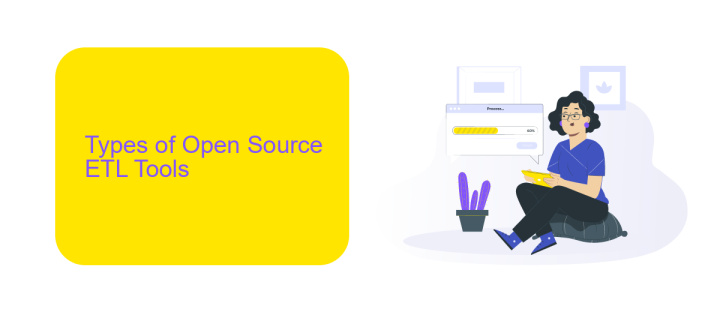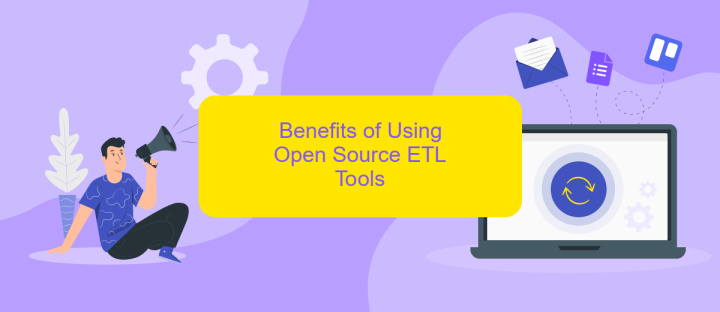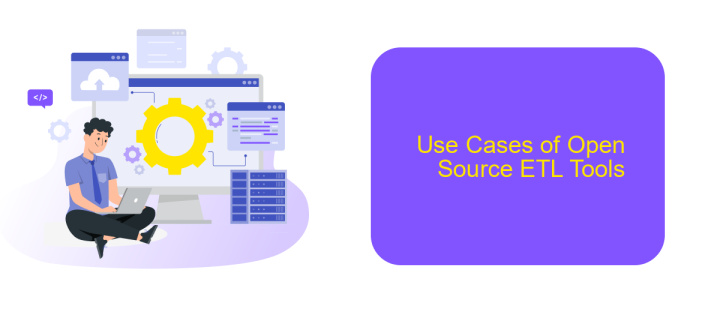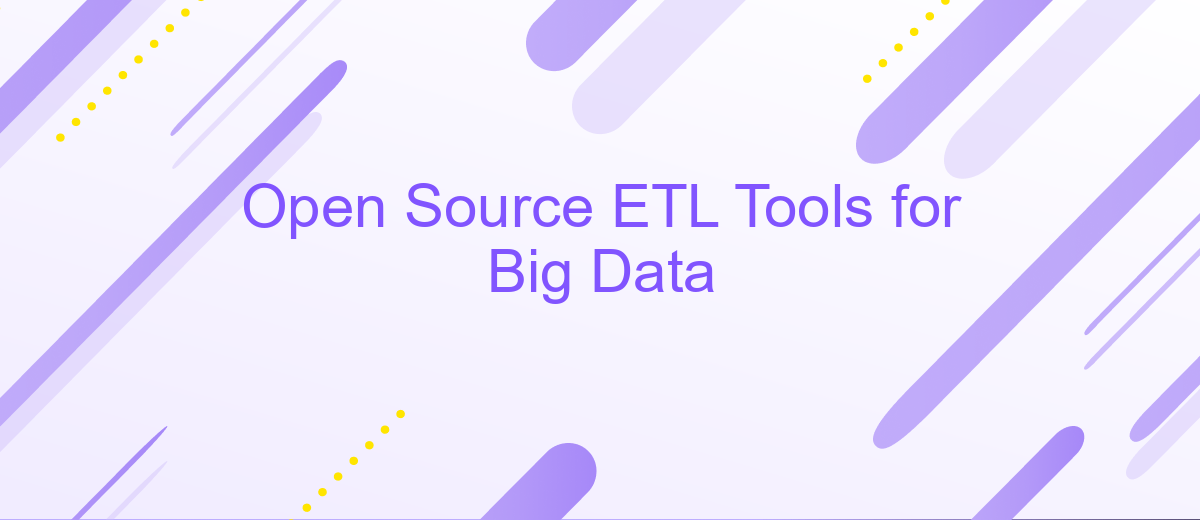Open Source ETL Tools for Big Data
In the era of big data, efficient data processing is crucial for gaining actionable insights. Open source ETL (Extract, Transform, Load) tools have emerged as powerful solutions for managing vast datasets without the high costs of proprietary software. This article explores some of the top open source ETL tools that can help streamline your big data workflows and enhance data-driven decision-making.
Introduction
In the era of big data, organizations grapple with the challenge of efficiently extracting, transforming, and loading (ETL) vast amounts of information. Open source ETL tools have emerged as invaluable assets, offering flexibility, cost-effectiveness, and robust functionality. These tools empower businesses to streamline data workflows, ensuring that critical insights are readily accessible.
- Cost-effective: No licensing fees, reducing overall expenses.
- Flexibility: Customizable to meet specific business needs.
- Community support: Continuous improvements and troubleshooting assistance from a global community of developers.
One notable mention is ApiX-Drive, a service that simplifies the integration process, making it easier to connect various data sources without extensive coding. By leveraging such tools, businesses can enhance their data integration processes, ensuring seamless data flow and improved decision-making capabilities. Open source ETL tools thus play a crucial role in the modern data landscape, driving efficiency and innovation.
Types of Open Source ETL Tools

Open Source ETL tools come in various types, each designed to cater to different data integration needs. Some popular categories include batch processing tools, which handle large volumes of data in scheduled intervals, and real-time processing tools that allow for continuous data flow and immediate updates. Batch processing tools like Apache Nifi and Talend are ideal for scenarios where data can be processed in bulk, whereas real-time tools like Apache Kafka and StreamSets are better suited for applications requiring instant data streaming and transformation.
Another important category is cloud-based ETL tools, which offer flexibility and scalability by leveraging cloud infrastructure. Tools like Google Dataflow and AWS Glue fall into this category, providing robust solutions for cloud-native data integration. Additionally, there are specialized tools for specific use cases, such as ApiX-Drive, which simplifies the integration of various APIs and services, making it easier for businesses to automate data workflows without extensive coding. These diverse types of Open Source ETL tools ensure that organizations can find a solution tailored to their specific data management needs.
Benefits of Using Open Source ETL Tools

Open Source ETL tools offer numerous advantages for managing big data workflows efficiently. These tools are not only cost-effective but also provide flexibility and community support, making them a popular choice for businesses of all sizes.
- Cost-Effective: Open Source ETL tools eliminate licensing fees, reducing the overall cost of ownership.
- Flexibility: These tools can be customized to meet specific business requirements, offering greater adaptability.
- Community Support: A large community of developers contributes to continuous improvements and quick issue resolution.
- Scalability: Open Source ETL tools can easily scale to handle increasing data volumes, making them ideal for growing businesses.
- Integration Capabilities: Services like ApiX-Drive enhance the integration process, enabling seamless connectivity between various data sources and platforms.
In summary, Open Source ETL tools provide a robust, scalable, and cost-effective solution for managing big data. With the added benefit of community support and integration services like ApiX-Drive, businesses can optimize their data workflows and drive better decision-making.
Use Cases of Open Source ETL Tools

Open Source ETL tools are crucial for various data-driven applications, offering flexibility and cost-efficiency. One of the primary use cases is data warehousing, where these tools help in extracting data from multiple sources, transforming it into a suitable format, and loading it into a data warehouse for analysis. This process enables businesses to gain insights and make informed decisions based on consolidated data.
Another significant use case is data migration. Organizations often need to move data between different systems, whether during an upgrade or when switching to a new platform. Open Source ETL tools streamline this process by ensuring data integrity and minimizing downtime. Additionally, these tools are essential for integrating disparate systems, allowing seamless data flow across various applications and services.
- Data warehousing
- Data migration
- System integration
- Big data analytics
For businesses looking to automate their integrations, services like ApiX-Drive can be particularly useful. ApiX-Drive simplifies the process of connecting various applications and automating data workflows, enhancing the capabilities of Open Source ETL tools. By leveraging such services, organizations can achieve efficient and reliable data management, ensuring that their data-driven strategies are both effective and scalable.


Conclusion
In summary, open source ETL tools play a crucial role in managing and processing big data efficiently. These tools offer flexibility, cost-effectiveness, and a robust community support system, making them ideal for organizations looking to optimize their data workflows. By leveraging these tools, businesses can ensure data accuracy, streamline operations, and gain valuable insights without the hefty price tag associated with proprietary solutions.
Moreover, integrating these ETL tools with other services can further enhance their capabilities. For instance, using platforms like ApiX-Drive can simplify the integration process, allowing seamless data flow between various applications and systems. ApiX-Drive offers an intuitive interface and a wide range of connectors, making it easier to automate data transfers and reduce manual intervention. Ultimately, the combination of open source ETL tools and integration services like ApiX-Drive can significantly boost an organization's data management strategy, leading to better decision-making and improved business outcomes.
FAQ
What are Open Source ETL Tools for Big Data?
What are some popular Open Source ETL Tools for Big Data?
What are the advantages of using Open Source ETL Tools for Big Data?
How can I automate ETL processes for Big Data?
What should I consider when choosing an Open Source ETL Tool for Big Data?
Do you want to achieve your goals in business, career and life faster and better? Do it with ApiX-Drive – a tool that will remove a significant part of the routine from workflows and free up additional time to achieve your goals. Test the capabilities of Apix-Drive for free – see for yourself the effectiveness of the tool.

